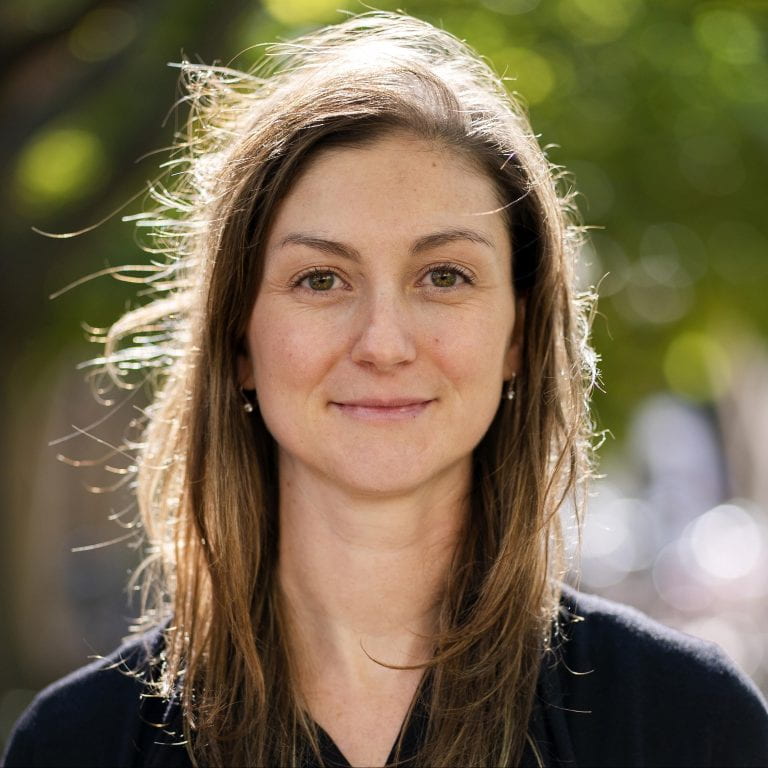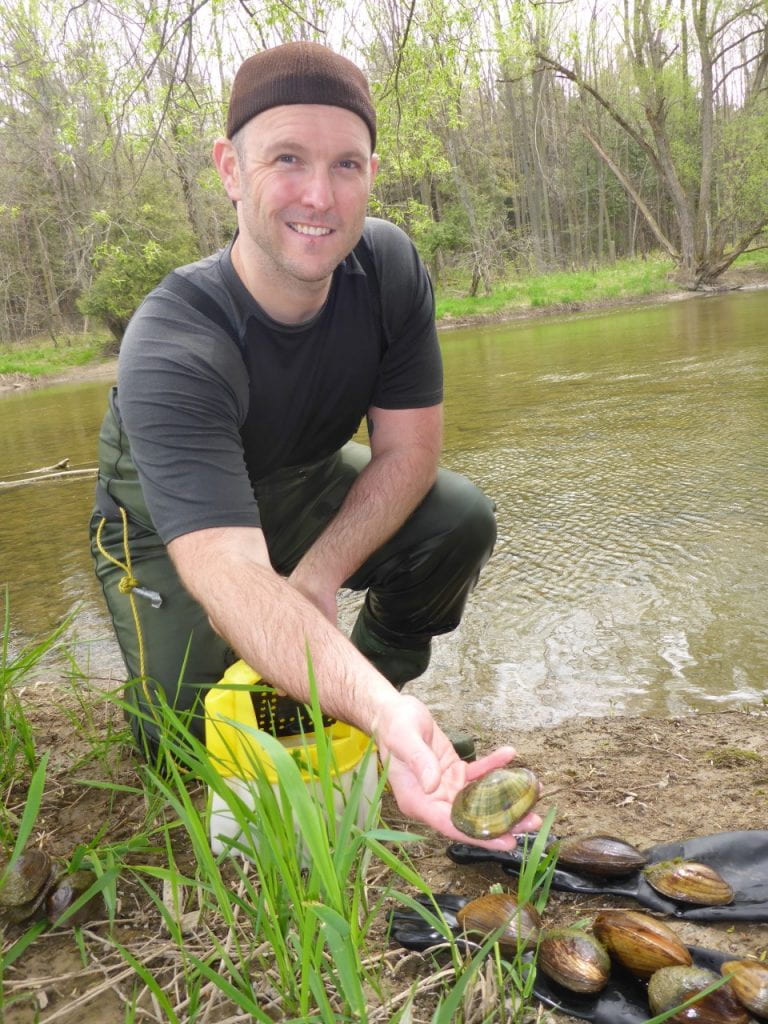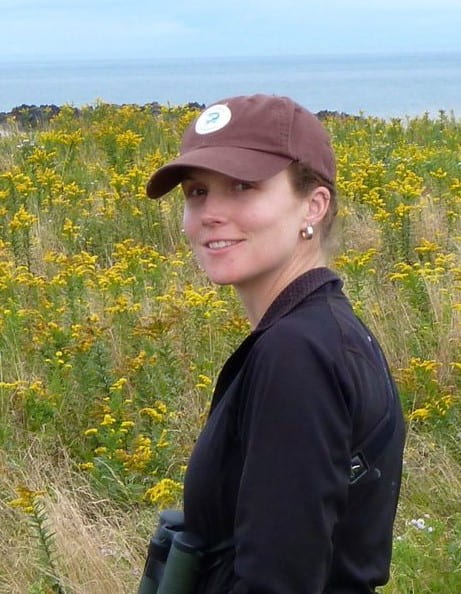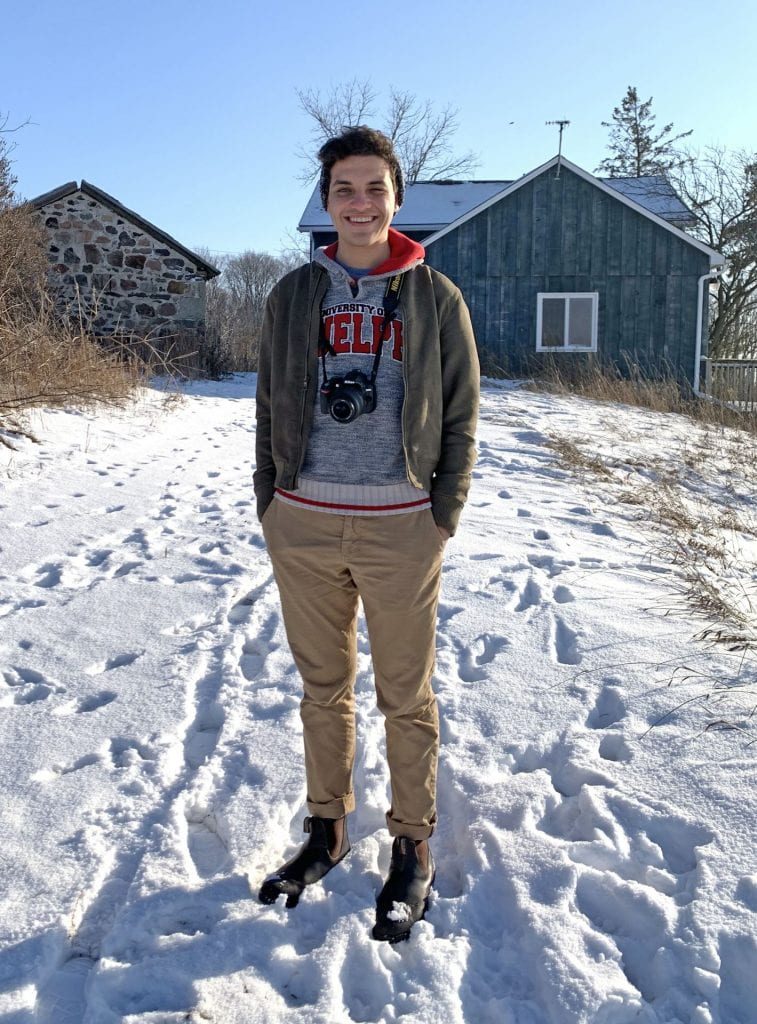The Woolner Studentship
The Robert W. Woolner Undergraduate Summer Research Studentship in One Health (the Woolner) offers an experiential research opportunity in One Health for undergraduates or DVM students. The Woolner Studentship supports opportunities for undergraduate and DVM students to engage in semi-independent research projects or participate in larger ongoing research projects during the summer.
Value and Duration
Student Salary Support: $9,500
Operating Support: $500
A total of $9,500 will be provided for student salaries and benefits. This is based on a minimum hourly rate of $17.50 for a maximum total of 497 hours (14.2 weeks). Student wages must align with type of work performed (these are considered Level 2 positions), as described in the University of Guelph Student Wage Guidelines. A higher hourly rate or any additional hours over the 497 hours will be paid by the faculty member. In addition to the salary, the faculty advisor for each approved position will receive $500 in operating support. Students must be present for 35 hours per week during the entire 14.2 week period of the research project. As students will receive 4% vacation pay on their hourly rate, it is expected that they will work full-time (35hrs/week) for the entire 14.2 weeks.
Eligibility Criteria
Applications will only be considered if the student will engage in One Health research.
Priority will be given to:
- Early career/pre-tenure researchers who can clearly demonstrate shared research activities arising from this collaboration
- A faculty member who has not previously received an award administered by the One Health Institute
A maximum of one project per faculty member will be approved.
Award Allocation
The Woolner Summer Research Studentship will be allocated through a two-stage process:
Stage 1: Faculty Submit Project Proposals
- Selection of projects by the Director, One Health Institute, with input from the One Health Institute Advisory Board
Stage 2: Students Apply
- Selection of student by faculty members successful in Stage 1
Schedule of Dates
| Date | Action Due |
| Monday, October 7, 2024 | Call for Project Proposals Opens |
| Friday, December 13, 2024 | Project Proposals Due |
| Wednesday, January 15, 2025 | Successful Proposals Announced |
| Thursday, January 16, 2025 | Faculty Member recipient may begin advertising opportunity |
| TBD | Final date that offers can go out to students. Note that offers can be made/accepted anytime between January 16th and TBD 2025 |
STAGE 1 – FACULTY
Stage 1 (Project Abstracts – Submitted by Faculty)
How to Apply
Please submit a project proposal.
To complete the application you will need the following information at hand:
- Your name, affiliation and contact information
- Proposed start date
- Project title
- Project proposal description (1/2 page or 250 words)
- At least one project objective and a description of why a One Health approach is necessary to achieve this objective
- Record of student supervision (max. 200 words): Briefly describe your previous graduate / undergraduate student research supervision
- A short description of the role for the student in this project
Evaluation Process and Criteria
The Director, One Health Institute will select the project for funding based on the following criteria:
- Relevance / alignment of the proposed research with One Health
- Clarity and feasibility of the research objectives and experimental plan
- Suitability of the project for DVM and undergraduate summer research students
- Availability of operating funds and infrastructure for the summer research project
STAGE 2 – STUDENTS
Students interested in working on a specific summer research project will contact faculty members directly.
STAGE 3 – SETUP OF STUDENT APPOINTMENT
Award Administration
Once the faculty member chooses a successful candidate, please cc OHI Program Manager, Katherine Heyland (heylandk@uoguelph.ca), on your email to the student confirming the upcoming appointment.
Terms and Conditions
The student recipient of the Robert W. Woolner Undergraduate Summer Research Studentship in One Health must:
- Be available to work on the research project for 14.2 weeks full-time (i.e. 35 hours/week) between May 1 and August 31 of the calendar year in which the award is granted
- Be a full-time University of Guelph student in good standing who is registered in Phase 1 or 2 of the DVM program, or after 2nd or 3rd year of a related University of Guelph undergraduate program and returning in the fall
- Participate in the summer Career Opportunities and Research Exploration (CORE) program or equivalent program on campus.
- Advisors are requested to be flexible in research work hours to allow students to participate in this program
- Participate in the CPHAZ One Health Poster Day in the fall semester of the year in which the award is granted
- Complete a survey evaluating the research experience and the mentor’s performance
Faculty advisors must:
- Be available to supervise the summer research student for the entire 14.2-week period (or longer is the student is employed for a longer period)
- Provide an advisory and mentoring role to motivate and guide the student and to foster an interest in research
- Complete a survey evaluating the student’s performance and the efficacy of the program at completion
Woolner Projects
2025
The Wiley Coyote: interactions between coyotes, caribou, and humans
Project Summary
Caribou populations are in decline throughout Canada. In some caribou systems, targeted removal of predators (e.g. wolves) is thought to enhance caribou population trends. On the Island of Newfoundland, wolves have been extirpated since the 1930s, meaning that wolves on the Island are ‘locally extinct’. Meanwhile, coyotes underwent a natural range expansion in the 1980s and have become to dominant predator of caribou. Coyotes in Newfoundland have historically faced heavy persecution from humans due to their perceived implication in caribou declines. Coyotes continue to face persecution from humans, presumably because they are thought to consume caribou and contribute to population declines. An unintended consequence of human contact with coyotes is the possible transmission of parasites to humans or their dogs. Specifically, Echinococcus is a known parasite of canids and is becoming increasingly common in Ontario and Quebec, though prevalence in Newfoundland remains relatively low. Echinococcus infects coyotes and dogs and can have severe human and animal health implications. It also remains to be seen whether coyotes kill caribou or simply scavenge caribou that died of other causes. Moreover, it is unknown whether they can kill adults or only calves. Our results will contribute to broader knowledge of coyote, caribou, and human health. Learn more!
About the Faculty: Dr. Quinn Webber

Dr. Quinn Webber is an Assistant Professor in the Department of Integrative Biology at the University of Guelph’s College of Biological Science. The Webber lab studies the causes and consequences of animal behaviour. Specifically, the lab looks at how individual behavioural and environmental variations affect bats’ and caribous’ fitness and disease outcomes. The implications of this work are wide-ranging and include contributing to (1) the development of theory and methods, (2) One Health initiatives, and (3) the conservation and management of species at risk.
Detection of Leptospira spp. in urban surface water: Bacteria presence and association with meteorological factors
Detection of Leptospira spp. in urban surface water: Bacteria presence and association with meteorological factors
Project Summary
Leptospira spp. are waterborne zoonotic bacteria that infect wildlife, companion animals, and humans via infected urine, contaminated soil and water. This project seeks to characterize the presence of Leptospira spp., in urban surface water in Ontario and to examine associations with meteorological factors. Water samples from urban sites will be collected and water quality data (pH, temperature, conductivity, total coliforms, dissolved oxygen) recorded for each sample. Climate data (temperature, precipitation) will be collected from local weather stations and linked with the water samples for modelling associations with the presence of Leptospira spp. The results from this project can be used to characterize the presence of Leptospira spp in surface and predict the risk from pathogenic Leptospirosis spp for animals and humans. This specific project will contribute to the exploration of associations between climate and the geographic distribution of Leptospirosis in companion dogs across Ontario. Since Leptospira spp. can infect humans the implications of the results are applicable human health risk in recreational waters and reducing burden of disease in humans from water sources. A One Health approach with interdisciplinary collaboration is necessary to understand the relationships between water quality, climate and disease risk to animals and humans.
This project contributes to a larger grant funded by the Public Health Agency of Canada which aims to understand how climate is associated with zoonotic disease risk for companion animals and humans in Ontario. This work is in collaboration with early career researcher Dr. Lauren Grant in the department of Population Medicine.
About the Faculty: Dr. Heather Murphy

Heather Murphy is an Associate Professor in the Department of Pathobiology at the University of Guelph’s Ontario Veterinary College. Dr. Murphy’s research interests involve understanding and addressing water and health challenges in both developed and developing countries. Dr. Murphy leads the Water, Health and Applied Microbiology (WHAM) Lab. Her research focuses on four key areas related to microbial quality of water and public health: 1. Surface water quality and recreation, 2. The impact of septic systems and agricultural activity on private wells, 3. Microbial Ecology of drinking water distribution systems, and 4. Water and Sanitation challenges in resource-limited settings.
About the Student: Garrett Terpstra

My name is Garrett Terpstra, and I am an Honours Microbiology student at the University of Guelph. I have a passion for the topics of infectious diseases, microbial ecology, and the gut microbiome and how they impact the health of both humans, animals and the environment.
This summer (2025) I will be assisting Dr. Murphy and her team with characterizing the presence of Leptospira spp. in surface water across different sites in Ontario and relating the results to meteorological factors. I am excited to have the opportunity to conduct field work in the form of sample collection from the different sites, as well as expand my skillset in the lab through their analysis. I am looking forward to being able to use a One Health approach to research and I hope to use this experience to make an impact in the healthcare field in the future.
2024
Investigating the impact of petroleum products on species of ecological, cultural, and commercial importance to indigenous communities on Canada’s Pacific Coast
About the Faculty: Dr. Ryan Prosser

Ryan Prosser is an Associate Professor in the School of Environmental Sciences (SES), part of the University of Guelph’s Ontario Agricultural College (OAC).
Growing up, Ryan always loved being outside and near the water. From family camping trips, canoe trips and summer camps, he always had a love for the environment. He chose to study biology in university not quite knowing where it would take him. After completing teacher’s college, Ryan taught chemistry to grade 11 and 12 students in Kuwait, but always had the idea of research in the back of his mind. When he returned to Canada he chose to pursue grad school and was able to find a topic that combined his interest in biology and chemistry, with his love of the outdoors – environmental toxicology. Today Ryan’s research looks at the impact of chemicals or the mixture of chemicals on aquatic and terrestrial ecosystems.
Ryan’s research focuses on chemicals, such as pesticides, used in agriculture, as well as industrial chemicals, and what impact they have on the environment. His research also investigates how we can reduce the potential negative impacts that the chemicals we use in society have on the environment. Another interesting aspect of his research is his work with freshwater mussels. Southern Ontario has the greatest diversity of fresh-water mussels in Canada, and North America itself has more mussel species than anywhere else in the world. However, most of them are either threatened or endangered. Ryan is looking at the impact that humans have on freshwater mussels, how we can preserve the populations we have, as well as how we can help them flourish.
Project Summary
Our project is investigating the long-term effects of marine diesel exposure on three species of bivalve found on the central coast of British Columbia in the territory of the Heiltsuk Nation. These bivalve populations are of cultural, ecological, and economic importance to the Heiltsuk community. This project will examine the effect of marine diesel exposure on larval and juvenile viability along with the reproductive capacity of adult bivalves. The results of this study will provide insight that will be useful a) as the Nation investigates the most effective approach to the restoration of this specific fishery, b) as regional risk protection strategies are being developed to protect against and respond to future incidents, and c) at a broader level, to advance understanding of persistent, long-term ecological effects of marine diesel pollution to near-shore environments.
A One Health approach is essential to achieving our research objectives. We will be collaborating closely with the Haíɫzaqv Nation and integrating several areas of study, e.g., traditional knowledge, toxicology, ecology, community food security. Members of Haíɫzaqv Nation have been tending and harvesting clams in their territory for millennia, resulting in the community possessing an immense amount of knowledge about the clam populations and the ecosystems they inhabit.
About the Student: Jacob Gawronski

Jacob Gawronski is a third-year student at the University of Guelph, majoring in Environmental Sciences. His main field of interest is in ecotoxicology, and he is excited to take part in the important work that Dr. Prosser’s lab conducts.
This summer (2024), Jacob will help conduct experiments to assess the health of adult clams from different locations across the Haíɫzaqv Nation, the ability of the adults to reproduce, and the viability of the offspring. To do this, he will travel to Haíɫzaqv Territory to conduct field collections, alongside graduate students from the Prosser lab and the Haíɫzaqv coastal guardian watchmen. Travel to the Haíɫzaqv Nation will provide Jacob with the opportunity to conduct field research but also to learn about Haíɫzaqv culture and the close link between ecosystem health and community food security.
Bat Diet, Health and Insect Abundance
About the Faculty: Dr. Quinn Webber

Dr. Quinn Webber is an Assistant Professor in the Department of Integrative Biology at the University of Guelph’s College of Biological Science. The Webber lab studies the causes and consequences of animal behaviour. Specifically, the lab looks at how individual behavioural and environmental variations affect bats’ and caribous’ fitness and disease outcomes. The implications of this work are wide-ranging and include contributing to (1) the development of theory and methods, (2) One Health initiatives, and (3) the conservation and management of species at risk.
Project Summary
Anthropogenic changes in land use that negatively affect insect biodiversity and food availability, combined with the spread of white-nose syndrome (WNS), are major factors that have led to the classification of little brown bats (Myotis lucifugus) as an endangered species in Ontario.
My lab will study bats on Manitoulin Island, a biodiversity hot spot, and region known for historically abundant bat populations. Given the concerns for health of little brown bat populations, as well as their role in sustaining environmental, human, and agricultural health, a detailed examination of their foraging behaviour in different habitats is essential for making informed conservation and public health decisions.
A One Health approach is essential for this study, highlighting the inter-connectedness of little brown bats’ health, the ecosystems they occupy, and human well-being. Assessing bat’s diet and prey availability will offers insights into their habitat preferences, as well as the health and suitability of different ecosystems. In addition, we will locate bat roosts based on Indigenous and local knowledge in the area. These factors have direct implications for human health and agriculture, particularly in pest control and disease management. Embracing this holistic perspective is crucial for crafting effective conservation strategies and guiding land use planning.
About the Student: Owen Enrique Tapia-Daly

Owen Enrique Tapia Daly is a fourth-year student at the University of Guelph, majoring in Wildlife Biology and Conservation. His main interests are in the interconnections of plants and fungi, as well as insects and mammalian behaviour. Owen is excited to take part in the important work that the Webber lab conducts.
This summer (2024), Owen will help assess dietary and habitat preferences of little brown bats. During the field season (May-August) Owen will be trained in bat handling (animal health) and insect identification (human health) and use GIS land satellite images to measure the proportion of different habitat types (environmental health) in areas around each roost.
2023
A Survey of Bats and Their Ectoparasites for a Pathogen of Human Health Concern
About the Project:
Little brown bats (Myotis lucifugus) are an endangered species in Canada that host a wide range of parasites and pathogens of human health concern. Among them is Bartonella, a bacterial pathogen that may be transmitted among hosts, including humans. Most Bartonella infections in humans require antibiotic treatment. In rare cases, infections may be fatal. Our project will determine the extent to which Bartonella exists within bats and their ectoparasite communities (bat fleas, flies, and bugs) in Ontario.
About the Professor:

Quinn Webber is an Assistant Professor in the Department of Integrative Biology at the University of Guelph’s College of Biological Science. The Webber lab studies the causes and consequences of animal behaviour. Specifically, the lab looks at how individual behavioural and environmental variations affect bats’ and caribous’ fitness and disease outcomes. The implications of this work are wide-ranging and include contributing to (1) the development of theory and methods, (2) One Health initiatives, and (3) the conservation and management of species at risk.
About the Student:

Marie Cera is a fourth-year student majoring in Biological Science and minoring in Zoology. Under the mentorship of Dr. Webber, she has been conducting field and lab work throughout summer ’23, focusing on the study of Bartonella in little brown bats (Myotis lucifugus). Marie captures, tags, and measures bats to understand disease prevalence and transmission patterns of Bartonella. Marie is passionate about exploring the connections between wildlife conservation and human health, particularly with respect to the co-existence of bats and humans.
Rotational Grazing and One Health – Can Rotational Grazing of Beef Cattle Improve Environmental and Animal Health?
About the Project:
Rotational grazing is highly beneficial for soil health; however, widespread adoption of this practice is still lacking. Anecdotally, rotational grazing has been associated with claims of reduced antimicrobial use and evidence of this benefit could serve as an added incentive for farmers to adopt this management strategy. This project aims to use a One Health approach to evaluate if
rotational grazing practices can reduce the need for pharmaceutical interventions and subsequently reduce the presence of pathogens and antimicrobial-resistant (AMR) bacteria in livestock and the receiving environment. Data collected will include antimicrobial usage on farm, pathogen and AMR bacteria in cattle and wildlife fecal samples, groundwater and adjacent surface waters. The results will inform the Ontario Agri-Food sector on the suitability of rotational grazing for reducing the spread of pathogens and AMR bacteria into the environment while ensuring animal health and welfare.
About the Professor:

Heather Murphy is an Associate Professor in the Department of Pathobiology at the University of Guelph’s Ontario Veterinary College. Dr. Murphy’s research interests involve understanding and addressing water and health challenges in both developed and developing countries. Dr. Murphy leads the Water, Health and Applied Microbiology (WHAM) Lab. Her research focuses on four key areas related to microbial quality of water and public health: 1. Surface water quality and recreation, 2. The impact of septic systems and agricultural activity on private wells, 3. Microbial Ecology of drinking water distribution systems, and 4. Water and Sanitation challenges in resource-limited settings.
About the Student:

Erica Hollmann is a fifth-year Microbiology Co-op student. Erica is interested in exploring antimicrobial resistance and its effects on microorganisms. During the Summer of 2023, Erica is working with Dr. Heather Murphy to evaluate the potential advantages of rotational grazing in promoting soil health.
As part of her research, Erica is gaining firsthand experience by collecting water and soil samples directly from a beef cattle farm. She is actively processing, analyzing and studying the collected samples in Dr. Murphy’s Water, Health And Applied Microbiology (WHAM) lab. This hands-on approach gives Erica a chance to delve into the applied aspects of her research as she further develops her scientific skills and knowledge.
2022
Bloomin’ Barcodes: Metabarcoding Harmful Algae Blooms
About the Project:
Cyanobacterial harmful algal blooms (HABs) have negative impacts on communities, animals including pets, livestock, and wildlife and there is a need to identify and analyse the detailed biotic and abiotic conditions surrounding HABs. In this project, we use water quality data and microbial diversity measurements and integrate them with bloom frequency and intensity in model lakes. We are looking to recruit a highly motivated student, interested in tackling this complex problem using a OneHealth approach, including bioinformatics analysis and benchtop experimentation
About the Professor:

Andreas Heyland is a Professor in the Department of Integrative Biology at the University of Guelph. His work broadly focuses on the endocrine and environmental signals regulating organismal physiology and development. Projects in the Heylandlab include the study of molecular and cellular mechanisms underlying metamorphosis and settlement in zooplankton, the physiological and developmental responses of phytoplankton and zooplankton to environmental change and biotechnology application of microalgae.
About the Student:

Laksha Jingree is a fourth-year BSc Honours student majoring in Biological Science. Laksha has developed great interest in the public health sector through undergraduate courses in epidemiology. She is particularly interested in the impact that micro-organisms in the environment have on human health. Through the HAB project, she aims to increase her interdisciplinary understanding of how One Health approaches can be applied to problems in the real world.
Zoonotic Disease Risk Factors Associated with Non-Human Primate/Human Interaction in a Captive Setting
About the Project:
Spillover of infectious disease from animals to people (zoonoses) or people to animals (reverse zoonoses) can have dramatic impacts. For example, novel infectious diseases like COVID-19 are the product of interactions between humans and people. Additionally, animals are at risk of reverse zoonotic disease that can result in illness or death – especially important for species threatened with extinction. Because of their evolutionary relatedness, non-human primates and humans share many infectious diseases. Thus, in cases where humans and non-human primates interact there is the potential for zoonotic/reverse zoonotic disease transfer. One special circumstance is in zoos where non-human primates, humans, and other animals all interact in a shared space. Understanding the spatial/temporal interactions among non-human primates, humans (e.g., zookeepers), and other animals (e.g., rodents) will help determine the potential risk factors that could lead to disease transfer between them. Although zoos have protocols to reduce the transmission of infectious disease, there are unknown avenues of transmission that still need to be uncovered. Thus, the objective of this research is to determine potential risk factors for zoonotic/reverse zoonotic pathogen transmission among non-human primates and humans at a zoo, map those factors, and provide recommendations to the zoo to reduce the potential risk.
About the Professor:

Travis Steffens is an Assistant Professor in the Department of Sociology and Anthropology his research leverages conservation biogeography, spatial ecology, and One Health approaches to understand how lemurs interact with and respond to human caused disturbance. He is also interested in how humans are impacted by applied conservation measures targeting lemurs and their habitat and he is interested in understanding the risk factors associated with zoonotic/anthroponotic transmission among humans and their domestic animals, wildlife, and their shared environment.
About the Student:

Raquel Archie is an upper year Bachelor of Arts – Honour Degree (BAH) student in anthropology with a minor in ecology. Raquel expresses specific interest in the relationship between human, environmental, and animal health regarding potential risk factors of zoonotic and reverse zoonotic pathogen transmission. She intends to employ a One Health approach to inform about these potential risks and recommend management strategies to reduce them.
Raquel hopes to make an impact on the future of environmental conservation and protection using the skills she has developed and nurtured through her time at the University of Guelph.
2021
Assessing Spillover of SARS-COV-2 in Peri-Domestic Wildlife Species
About the Professor

Dr. Katie Clow is an Assistant Professor in One Health in the Department of Population Medicine at the Ontario Veterinary College. Her research focuses on the ecology and epidemiology of vectors and vector-borne zoonoses, with a specific emphasis on the blacklegged tick and Lyme disease. She also conducts research more broadly on One Health, including pedagogy and community-level applications and is the Graduate Program Coordinator for the Collaborative Specialization in One Health.
She holds both a Doctor of Veterinary Medicine degree (OVC, 2011) and PhD (Pathobiology, 2017). Dr. Clow has worked in private small animal practice as well as at the national and international level in One Health through internships at the Canadian Food Inspection Agency, Department of Food Safety, Zoonoses and Foodborne Disease at the World Health Organization.
About the Student

Stephanie Gerend is entering her fourth year as an undergraduate student at the University of Guelph, completing an Honours Bachelor of Science in Biomedical Science. She is eager to work with Dr. Katie Clow on this One Health project and emphasize the importance of a transdisciplinary approach to solving problems, as solely focusing on one sector does not account for spillover and downstream effects. Espeically considering that the effects of SARS-CoV-2 are not isolated to humans.
During her time at UofG, she has developed a deep interest in the intersection of global development and biological science subject areas. After taking the One Health course, she realized that is a way to combine these two disciplines and has found herself extremely passionate about this intersection.
Beyond academics, Steph loves being involved in community-based work. She is currently the Co-Chair of Relay for Life at UofG, and over the past three years the committee set a Canadian Cancer Society record for largest post-secondary amount raised. She is also involved with Big Brother Big Sisters as a community mentor, facilitating one-on-one weekly meetings with her mentee in an effort to help reduce the societal barriers and adversities they face.
Through the Robert W. Woolner Studentship, Steph hopes to learn more about how the One Health approach can shed light on potential gaps in disease transmission and help build a framework for preventing future zoonotic transmission and spillover. She is looking forward to working with professionals from different sectors to solve this complex issue and learn more about multidisciplinary collaboration.
Previous Recipients
Summer 2020
Dr. Fiona James & Rachel Vella
Project: Comparing canine and human epileptic syndromes
Dr. Travis Steffens & Kiana Gibson
Project: Investigating the potential transmission of intestinal pathogens among people, lemurs, and domestic animals in Madagascar
Effects of Environmental Modification and Early-Life Stress on Wildlife Physiology
About the Professor

Dr. Amy Newman is an Associate Professor in the Department of Integrative Biology in the College of Biological Sciences. She is an ecophysiologist who’s training lies at the intersection of physiology, ecology and neuroendocrinology. She uses both field and laboratory techniques to answer questions that integrate ecology and physiology with the goal of understanding how the early life environment shapes stress physiology, behaviour and fitness.
Prior to joining the Department of Integrative Biology as a faculty member in 2012, Dr. Newman obtained a BSc from Queen’s University, a PhD in Neuroscience from the University of British Columbia, and was an NSERC Postdoctoral Fellow at the University of Guelph.
About the Student

Hello! My name is Hossam Ehab, and I am spending this summer working with the Newman lab on a project that involves a number of One Health principles. One Health is a research approach/outlook that I am passionate about. The project I will be working on examines the impacts of agricultural stress and landscape restoration on avian diversity in farms across southern Ontario.
I’m entering my fourth year of undergraduate studies at the university of Guelph this fall as a marine and freshwater biology major. In my spare time I enjoy biking, going for a hike, or photographing interesting things that catch my eye.
Through the Robert W. Woolner studentship, I’m looking forward to exploring how One Health principles can be applied to ecological diversity studies and to conservation efforts in a region that is also important for food production.
Previous Recipients
Summer 2020
Dr. Fiona James & Rachel Vella
Project: Comparing canine and human epileptic syndromes
Dr. Travis Steffens & Kiana Gibson
Project: Investigating the potential transmission of intestinal pathogens among people, lemurs, and domestic animals in Madagascar
2020
Comparing Canine and Human Epileptic Syndromes | Dr. Fiona James & Rachel Vella
Investigating the Potential Transmission of Intestinal Pathogens among People, Lemurs, and Domestic Animals in Madagascar | Dr. Travis Steffens & Kiana Gibson
Last updated: December 13, 2023



